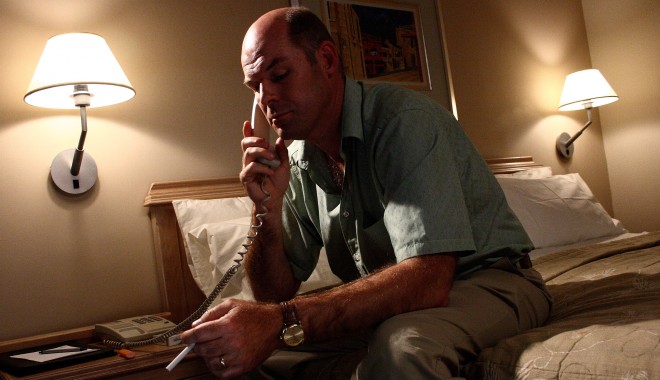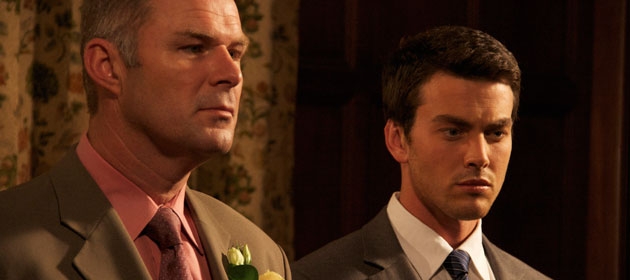Written and directed by Oliver Hermanus
France/South Africa, 2011
From across the room, François (Deon Lotz) witnesses a paragon of unequivocal beauty. With a painstaking allure and an irresistible smile, François is immediately, and unmistakably, enamored beyond all control. To him, this is love at first sight.
Already married, François approaches his extramarital muse with extreme caution, and, striking up an innocent conversation, tries to ingratiate himself. As the obligatory ice begins to break, François finds himself at greater ease, but deep inside the glacial façade of his exterior, dwells a suppressed fire of volatile proportions.
François is the subject of Oliver Hermanus’ Beauty*, a case study of an Afrikaans-speaking white man living in South Africa. In his mid-40’s, and married with kids, he is the prototypical average Joe, but unbeknownst to his family, François houses a deep-seated secret – he is gay.
Perpetually repressed, his inner demons manifests in wild ambivalence. Although he is outwardly homophobic, he also indulges in inconspicuous gay revelries to satiate his carnal urges. These urges seem to be well under control until he meets Christian (Charlie Keegan), the aforementioned love interest, at his daughter’s wedding. As his attraction turns into obsession, François embarks on an irreversibly insidious journey to be, and get, what he’s always wanted.
To simply call Beauty a character study is a ridiculous over-simplification. The film is more like a psychological profile of a mentalist, which is an achievement in and of itself because, from the outset, there is nowt reason to like François. Although his closeted homosexuality is the main force behind his angst and self-loathing, there is a certain mean streak to his character that is fascinatingly abstruse.
As François becomes more and more consumed by his fascination with Christian, his actions become increasingly morbid, and unnaturally wonderful to watch. His unavailing undertakings are outlandish in conception, but, yet, it follows a certain logic that’s inherent to his character. As frustration mounts, the film becomes dangerously disconcerting, foreboding an inevitably gruesome climax (in every sense of the word).
With a plethora of long takes and a deliberately contemplative pace, Hermanus allows the tension to simmer in an intentionally uncomfortable manner, which, coupled with extremely graphic imagery, may prove to be too harrowing for most.
As well as creating an unnerving psycho-sexual thriller, Hermanus reveals himself to be an iconoclast, subverting the contemporary visage of masculinity. Never again will you see common social activities the same way (like drinking beer with the guys/watching the game), highlighting how even the most ‘normal’ looking people can harbour dark secrets.
But what Hermanus irrefutably does is make a picture of uncompromising dark complexion. The film never gets easier to stomach as it goes along, but, conversely, it always becomes more engrossing. We don’t yearn to like François as much as we do to understand him, with his ultimate fate amounting to searing curiosity. And with the final shot of the film, it’s implied that, like in the rest of Beauty, François’ life will spiral downward into forever darkness.
– Justin Li
* Beauty was South Africa’s official submission to the Best Foreign Language Film category for the 84th Academy Awards in 2012
Visit the official website for Inside Out





